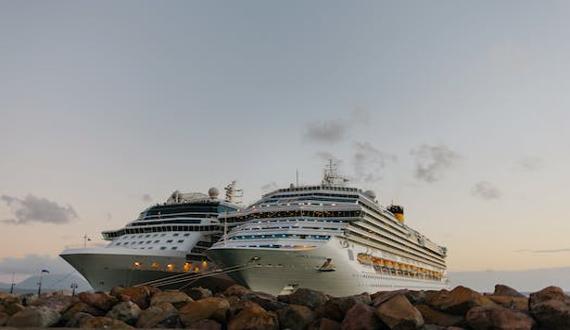Cruise ships have become increasingly popular in recent years as a luxurious and all-inclusive way to travel the world. Offering a unique combination of relaxation, adventure, and entertainment, these floating resorts provide an unforgettable experience for vacationers of all ages. Whether you are seeking a tranquil escape or an action-packed getaway, cruise ships offer a wide range of amenities and activities to cater to every traveler’s preferences.
Embarking on a cruise is like entering a different world altogether. From the moment you step foot on board, you are greeted by the grandeur and elegance of the ship. With spacious cabins, gourmet dining options, and top-notch entertainment, cruise ships strive to provide exceptional comfort and luxury for their passengers. Moreover, these floating cities offer a vast array of activities to keep guests entertained throughout their voyage, including swimming pools, spas, fitness centers, theaters, casinos, and even rock climbing walls. With itineraries that span across various destinations, cruise ships allow travelers to explore multiple countries and experience different cultures without the hassle of planning transportation or accommodation. Whether it’s the Caribbean, Mediterranean, Alaskan coast, or any other breathtaking destination, cruise ships offer a convenient way to discover the world’s most fascinating places.

Overview of Laws for Cruise Ships at Sea
When it comes to cruise ships, they are subject to a complex web of laws and regulations while at sea. As floating entities that traverse international waters, cruise ships are governed by various legal frameworks that ensure the safety and wellbeing of passengers and crew members.
According to Aronfeld Trial Lawyers, an article titled https://www.aronfeld.com/what-laws-do-cruise-ships-follow-at-sea/ provides valuable insights into the laws that apply to cruise ships. It highlights that cruise ships adhere to maritime laws, international conventions, and industry regulations to govern their operation and address issues such as maritime accidents, environmental protection, and passenger rights.
In addition to these general laws, there are also specific regulations that cruise ships must follow depending on the region they are operating in. For example, the United States Coast Guard enforces strict safety standards for cruise ships that enter U.S. waters, ensuring that they have proper emergency response plans, lifesaving equipment, and fire prevention measures in place. Additionally, the International Maritime Organization sets guidelines for cruise ships to prevent pollution and protect the marine environment. Passenger safety is a top priority for cruise ships, and they are required to conduct regular drills and train their crew members on emergency procedures. They are also equipped with state-of-the-art navigational and communication systems to ensure the ship’s safe operation. Moreover, cruise ship companies have their own set of policies and guidelines in place to ensure a smooth and enjoyable experience for passengers. These may include rules regarding behavior onboard, dress codes, and health and safety protocols. Cruise ships are also required to have medical facilities and trained medical personnel onboard to provide medical assistance if needed. Overall, the laws and regulations governing cruise ships at sea play a crucial role in maintaining the safety, security, and well-being of passengers and crew members. They help to ensure that cruising remains a safe and enjoyable form of travel, allowing passengers to relax and explore the world with peace of mind.
